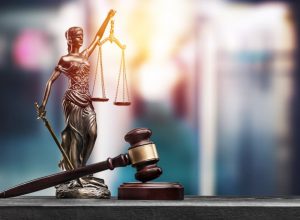Posted on Sunday, March 20th, 2022 at 3:05 pm
When you file a personal injury case, you will hear your attorney discuss something called “discovery.” Discovery is the meat of a personal injury case. It is when you and the other party will exchange information about your accident. It can also be the most dangerous time for unrepresented parties if they aren’t cautious or don’t know what to ask for in a discovery request.
If you have pressing questions, reach out to our team today at Jonathan R. Brockman, P.C.. We have the experience you need.
Discovery Basics

As the name implies, the discovery process is used to discover facts about the case from the other side’s perspective. Until the lawsuit is filed, you only know your side of the story. Discovery allows you and your attorney to find out what the other side is saying. There are specific ways attorneys are allowed to do this.
- Request for production of documents. This is one of the most common forms of discovery. If you are making a claim for medical bills or lost wages, the other side will want to see copies of your bills and proof of how much you usually make at work to determine whether your claim is accurate. Your attorney will want to see any claim that the other party made to their insurance company.
- Request for admissions. It may seem strange to ask parties to admit to facts before trial, but this is done to avoid having to prove basic information at trial. There are also some facts that may be in the parties’ interest to admit. For instance, if the other party is asked to admit they ran the red light and caused your accident, they may want to admit that, if there was a traffic camera that will show it and save time having to argue the case in court.
- Interrogatories. These are lists of questions that are answered “truthfully to the best of my knowledge” by the parties. If anything changes, the parties are required to submit new answers to the other party and to the court. These questions include things like names and addresses, employment, and verification of insurance and other information.
- Depositions. Sitting for a deposition is a little like going to trial. You or a witness will be sworn in by a court reporter and must answer questions under oath that are asked by the opposing counsel. Your attorney will be there to object, but unlike a trial, after an objection, you must still answer the question. Depositions are taken to get statements on record, to obtain witness statements while witnesses are available, and to provide a timeline.
- Inspections. Both your attorney and the opposing counsel can ask to inspect property or other items relevant to the case. For instance, if your accident happened in a store, the attorneys may want to view the site to see if anything was out of place or improperly managed at the location.
- Examinations. In a personal injury case, the opposing counsel can ask you to undergo additional medical examinations, especially if time has passed since the accident or if you are claiming psychiatric or emotional injury. Your attorney can object if the examination seems unnecessary or excessive.
Why You Need an Attorney

In most cases, you have 45 days from your receipt of the requests to respond to discovery. Depositions are usually scheduled in advance. One of the most common ways that laypeople lose cases is by failing to answer their discovery requests on time. Once you fail to respond, the opposing attorney can begin a series of court filings that result in your case being dismissed.
Another risk is answering questions in the wrong way or providing the wrong documents. Although you must answer interrogatories and requests for admission honestly, there are things you are legally not required to provide. The opposing counsel can only ask for documents that are relevant to the case and within a reasonable scope of time. Your attorney can help you obtain the documents you need from the other party and understand what you’re looking at. Contact us today.
Let Us Help
If you were injured in an accident caused by another person’s careless or negligent behavior, and you believe you need to file a lawsuit, you should not try to handle it yourself. You need skilled legal assistance from Jonathan R. Brockman, P.C. We will guide you through the process and make sure that your interests are protected while fighting to get you the compensation you deserve. Call Jonathan R. Brockman, P.C. at 770-205-8887, or contact us online for a confidential review of your case today.
